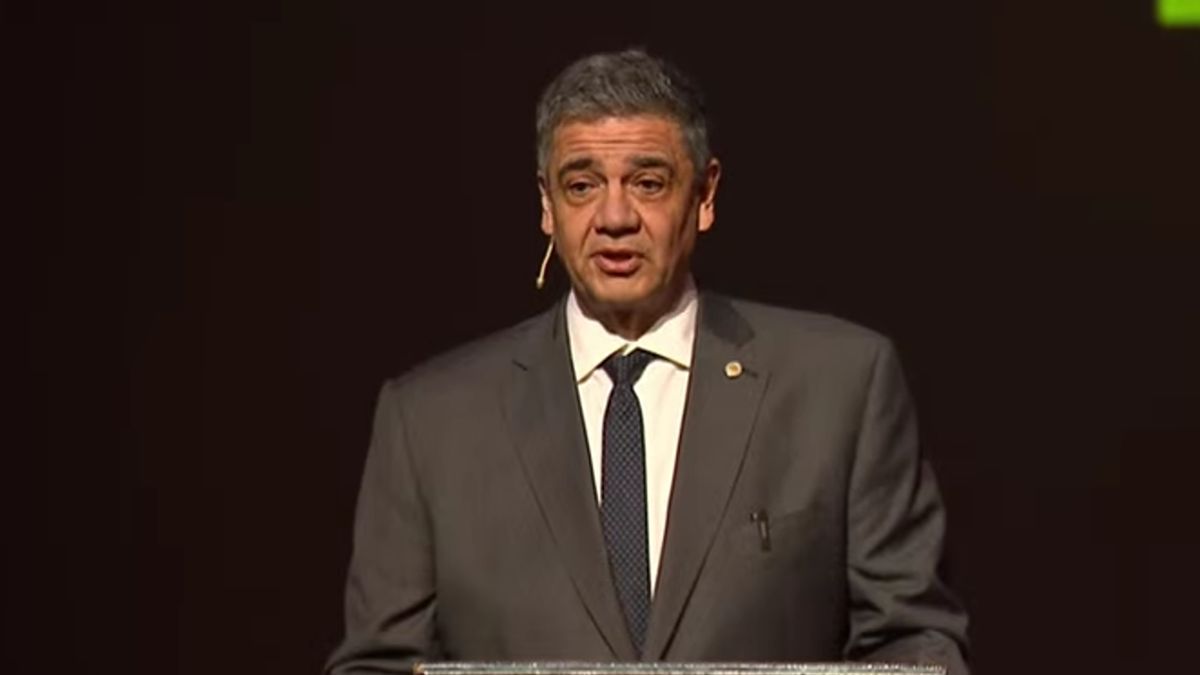The head of Government, Jorge Macri, once again defended his decision to split the elections in the City of Buenos Aires. Furthermore, the Buenos Aires official responded to the criticism outlined by the Minister of National Security, Patricia Bullrich, and maintained: “There is nothing dark. I don’t think that way, she will think so“.
Regarding the criticism received, Macri assured that today “Almost 19 of the country’s 24 provinces have their elections split“. In reference to the agenda for the 2025 elections, the official highlighted the need to suspend the Simultaneous and Mandatory Open Primary elections (PASO) and anticipated that in the city they may “have the number” to move forward with the project that removes them from next year’s electoral calendar.
Jorge Macri insisted on the splitting of elections
The decision made by the Buenos Aires administration to split the 2025 legislative elections from the national elections generated numerous repercussions and debates. In this scenario, the head of Government defended the measure in radio statements and stated: “All the provinces have split elections, here we announced to have split elections again and it was the news of the week. The City of Buenos Aires has that magnitude.”
Regarding the reasons behind the split, Macri explained that from his political strength they believe it is important that “Porteños can know what the positions are” regarding different competent issues of the City. In this sense he exemplified: “Does the port have to remain national or will they finally move to the city? Because the ports do not depend on the nation in the rest of the provinces. “Or the Retiro bus station, which seems incredible but is managed by the national government.”
In reference to the criticism received from a sector of the national ruling party, the head of Government lowered the tone of the public debate and assured that he maintains “good dialogue” with the President and that he has a “good relationship” with Bullrich. “If there is something that doesn’t bother me, it’s the different points of view. It can be a chicane, it can be. Now, The national government also evaluates whether to remove the PASO or notwhether the budget sends it or not,” he responded.
Finally, regarding the future of the city in the face of the next elections, Macri explained that what they seek to achieve is “have the largest number of deputies who believe in the institutionalityin the future, in the fiscal balance and that they do not want to go back. I don’t like being invited to be part with an absolute condition: it’s like I say or it’s nothing” and then he stated: “There are 3 years left for the city discussion. “Competition in politics is healthy, I’m not worried about competition.”
Jorge Macri seeks to suspend the PASO in 2025
Beyond the decision to split the legislative elections, another issue that was at the center of the political debate is the discussion about the usefulness of carrying out PASO during the next year. In this sense, the head of Government insisted on his position of suspending said electoral body and confirmed that his space sent the project to advance with said measure. “Majorities must be built, it is never easy. I think so, I think we can have the number.“, he predicted about the legislative debate.
In this scenario, the Buenos Aires official stressed that, for next year, they are simply looking for a “suspension“. “The elimination has to be seen if one gets all the hands. In a legislative session the only thing that one discusses in an internal one is the order of a list. Later, when the Executive comes, who is president, who is head of Government, it is difficult to find an agreement because everyone wants that within a political force. For example, the last one was a very strong, very interesting competition within our space with Lousteau. You have to see.”
Regarding the debate, Macri announced that the former Buenos Aires governor María Eugenia Vidal seeks to advance a project called PAS. He himself, as he described, seeks “avoid the obligation. Whoever wants participates in the internal and whoever wants doesn’t. “It’s just another way of saying that the parties can handle it.”
After this, the head of Government urged the ruling party to take the discussion to a “national level”, where the “STEP cost more than 200 billion pesos“.”It seems to me that Argentines are not willing to spend that money,” he concluded.
Source: Ambito
I am an author and journalist who has worked in the entertainment industry for over a decade. I currently work as a news editor at a major news website, and my focus is on covering the latest trends in entertainment. I also write occasional pieces for other outlets, and have authored two books about the entertainment industry.




